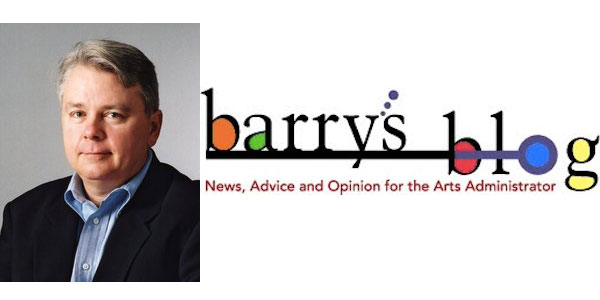
Knight Arts chats with Barry’s Blog
Dennis Scholl, Knight Foundation VP/Arts, chats with Barry’s Blog about thinking out of the box, the evolving needs and trends in arts philanthropy and the challenges facing the arts philanthropic community. Enjoy an excerpt from the interview below and click here to read the interview in its entirety.
BARRY: In a general sense, what do you think are the most important issues facing the arts philanthropic community, and what is your assessment of how we are addressing those challenges? What are we doing right, and where are we falling short? What areas do you think ought to be prioritized in terms of our national foundational goals? What do you think about the idea (and the feasibility) of creating a national arts funder policy statement to guide arts philanthropy priorities?
DENNIS: Wow, Barry, big question. But the one issue that I spend a lot of time on is how to catch up with the arts audience that more and more is defined by individuals seeking to curate their own experience, and move away from traditional presentation models. Both arts organizations, and we as funders, may have been a bit slow to react to this seismic drift in audiences. Take a look at Sunil Iyengar’s NEA study, Participation 2.0, for some of the facts that make up this sobering reality. I do see a grand awakening by arts organizations to these trends, but I believe that we all need to make these audience engagement issues an urgent priority in our programmatic, strategic and funding efforts. We at Knight, also feel particularly strongly about the digital revolution and what it means to our current and future consumption of culture. As a foundation founded on quality journalism, we have seen that industry decimated due to being slow to react to this profound change in the industry. Frankly, I see many parallels to this in the arts field. Too many arts websites provide the user with only opening hours and location, with no content that enhances the onsite programming, or allows the user to learn about the programming prior to or after attending. Arts groups need to have an integrated digital and mobile strategy for reaching their audience. In this day and age, it can’t be an afterthought. Your question regarding a national arts funder policy statement is an interesting one. Each arts funder has its own mission, and while a national dialogue among us is always necessary, and the GIA and AFTA in particular do a wonderful job providing a platform for those discussions, we at Knight tend to prefer an entrepreneurial, risk capital approach which hopefully yields successful models that can then be replicated. That being said, there is one area that I believe we can all agree on and work toward – that is the issue of a sustainability model for arts and culture in America…
Recent Content
-
Artsarticle ·
-
Artsarticle ·
-
Artsarticle ·

